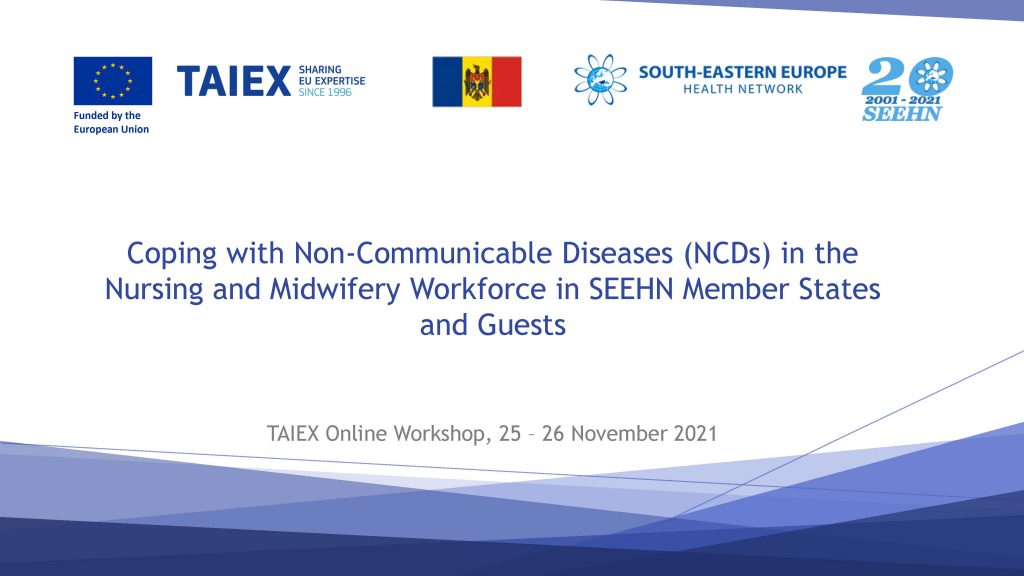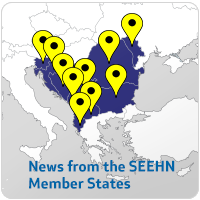As the pandemic is still unfolding globally and at a time when a fourth and a potential fifth wave is still keeping Europe under enormous pressure, it is too early to assess the full impact of this health emergency.
However to date, the COVID-19 has severely disrupted NCDs prevention and treatment services in many countries which is likely to lead, according to the WHO, to a long-term upsurge in deaths from NCDs.
Immediate action is essential to reverse these trends, and optimizing the skills mix of nurses and midwives can support health systems’ efforts to tackle with the growing burden of the disease.
On November 25 and 26, the South Eastern European Health Network, in cooperation with the European Commission’s Technical Assistance and Information Exchange Tool (TAIEX), organized a multi-country Workshop on Coping with Non-Communicable Diseases (NCDs) in the Nursing and Midwifery Workforce in SEEHN Member States (Western Balkan and beyond).
As Dr. Mira Dasic, Director of the SEEHN Secretariat, mentioned in her introductury remarks, nurses and midwives play a key role in the successful delivery of health- and social-care services. As the health needs of the Region change (demographic challenges, morbidity profile, migration), nurses are becoming an increasingly important part of the response. Nurses and midwives work at all levels of health systems and across diverse settings and contexts they deliver quality care and their role is critical to achieve universal health coverage and to make it a reality for every citizen.
The two-day event aimed to strengthen and modernize the workforce capacities in nursing and midwifery and to provide support and management of the NCDs at the community level. The workshop provided insight into best practices from EU Member States, reflecting on the possibilities of extending or implementing competency-based models for nurses in the SEE region, as well as enabling and applying EU Recommendations and EU standards in addressing NCDs. This multi-country event also explored the digital possibilities of being integrated and thus strengthening the resilience of the health workforce. The workshop was organised in co-operation with Ministry of Health of the Republic of Moldova and SEEHN Regional Health Development Center on Human Resources for Health hosted by the Republic of Moldova.






